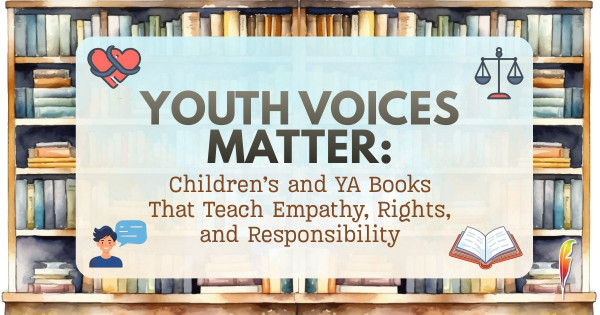
How To Become a Successful Author in 2025: 10 Best Tips and Tricks from Professionals
In a world brimming with content and creativity, becoming a successful author is both a thrilling and challenging journey. With technology evolving rapidly and publishing trends constantly shifting, aspiring authors need to stay ahead of the curve. What worked for authors a decade ago might not cut it in 2025. Fortunately, seasoned professionals have shared their tried-and-true strategies for breaking into the world of writing and finding success.
Whether you dream of penning the next great novel, writing short stories, or becoming a thought leader through non-fiction, these 10 essential tips and tricks from industry experts will guide you toward achieving your author goals in 2025.
1. Study Writing: Hone Your Craft
The foundation of any successful writing career is a solid understanding of the craft. To become an exceptional author, you need to master essential elements such as story structure, characterization, dialogue, pacing, and grammar. Strong writing skills form the backbone of any compelling book, and as trends shift, readers’ expectations are rising.
Start by analyzing the writing styles of your favorite authors. Break down their stories to see how they build tension, create believable characters, and construct powerful dialogues. Invest time in improving your vocabulary and grammatical skills. Remember, a well-written manuscript stands out in any era, and 2025 is no exception.
Pro Tip: Take courses or attend writing workshops that focus on key areas such as plot development, world-building, and writing for specific genres. Many online platforms, like MasterClass or Coursera, offer courses from well-known authors.
2. Read as Much as Possible
Every great writer is first and foremost a reader. Reading widely across genres not only helps you develop a sense of storytelling, but it also expands your vocabulary and knowledge of literary techniques. By exposing yourself to diverse genres, you’ll gain a deeper understanding of what resonates with different audiences.
Explore everything from classic literature to contemporary fiction and even genres you might not initially be drawn to. This will help you discover what style of writing suits you best. Are you better at crafting spine-chilling thrillers, or do heartfelt romance novels come naturally to you? Through reading, you’ll find your niche.
Pro Tip: Make a habit of reading books critically—take notes on what works and what doesn’t. This will help you develop your unique writing voice while avoiding common pitfalls.
3. Write a Lot and Stay Consistent
Writing is a skill that improves with practice. If you want to succeed as an author, the most important thing you can do is write consistently. Set realistic writing goals for yourself, whether it’s writing 500 words a day or dedicating a specific amount of time each week to your projects.
Don’t wait for inspiration to strike—discipline and routine will carry you further. As you write regularly, you’ll not only improve your technical skills but also develop a clearer sense of the types of stories you want to tell.
Pro Tip: Start with small writing projects, such as short stories or blog posts, before tackling larger projects like novels. These smaller projects allow you to experiment, make mistakes, and learn in a low-stakes environment.
4. Find What Works Best for You
The journey to becoming a successful author is not one-size-fits-all. Some writers thrive on working across multiple genres, while others find their success by focusing on one. Experiment with different formats, genres, and even storytelling methods to discover what resonates with you.
As you continue to develop your skills, you may find that writing in one genre provides greater career opportunities. However, don’t feel pressured to conform—many successful authors have built careers on their ability to write across genres.
Pro Tip: Keep experimenting with new techniques and genres until you find your sweet spot. Your unique voice will emerge naturally as you explore.
5. Join Writing Communities
Writing can often feel like a solitary activity, but it doesn’t have to be. Joining writing communities can provide invaluable support, feedback, and encouragement. Whether you’re attending a local writing group, joining an online forum, or participating in writing challenges like NaNoWriMo, being part of a community will keep you motivated and inspired.
In these communities, you’ll have the opportunity to connect with other authors, share feedback on each other’s work, and even collaborate on projects. Many professional authors credit their writing communities with helping them push through moments of doubt and writer’s block.
Pro Tip: Seek out critique groups that offer constructive criticism. Honest feedback will sharpen your writing skills and give you the confidence to improve your work.
6. Find a Literary Agent
If you plan to publish traditionally, finding a literary agent is one of the most important steps in your author journey. Agents act as the bridge between authors and publishers, negotiating book deals and handling the legal aspects of the publishing process.
A good agent will guide you through the complexities of publishing contracts and help position your book for success. They also have connections within the industry and can help you reach the right audience.
Pro Tip: Before seeking out an agent, research the agents who represent your genre and make sure your manuscript is polished. A well-edited, market-ready manuscript will increase your chances of landing representation.
7. Build an Author Platform
In 2025, an author’s success isn’t just about writing a great book—it’s also about building a loyal audience. Having a strong author platform is crucial for connecting with readers and promoting your work. Whether it’s through a blog, social media, or podcasts, you’ll need to engage with your audience consistently.
Your author platform should reflect your personal brand and provide your audience with valuable content. This can be anything from sharing writing tips, exclusive sneak peeks, or insights into your creative process. When readers feel connected to you, they’re more likely to support your work.
Pro Tip: Start by creating a website or blog where you can share your writing journey. Use social media platforms like Instagram, Twitter, or TikTok to interact with your readers and build a community around your work.
8. Leverage Email Marketing
While it may seem outdated, email marketing remains one of the most effective tools for authors to promote their work and engage with readers directly. Building an email list gives you direct access to your audience, allowing you to notify them about book launches, upcoming events, and exclusive content.
Offer free content, like a reader magnet (a free chapter or bonus content), to entice readers to subscribe to your email list. Once you have their contact information, you can nurture this relationship over time, keeping your readers excited about your next project.
Pro Tip: Use email marketing tools like Mailchimp or ConvertKit to automate and manage your email campaigns, ensuring that your messages reach the right audience at the right time.
9. Develop Your Personal Brand
Your personal brand is what sets you apart from other authors and gives your readers a reason to connect with you on a deeper level. Much like influencers promote products, authors need to promote themselves and their work by developing a recognizable personal brand.
A strong personal brand helps you stand out in the crowded publishing world and increases your chances of success. This includes your public persona, the tone you use when engaging with your audience, and even the visual aesthetic of your book covers and marketing materials.
Pro Tip: Be authentic. Your personal brand should reflect who you are as both an author and a person. Consistency in how you present yourself will attract readers who resonate with your voice and stories.
10. Save Your Ideas and Keep Networking
Inspiration can strike at any time, so make it a habit to jot down ideas whenever they come to you. Whether you carry a notebook or use an app, keeping a record of ideas will provide you with a treasure trove of content to draw from when it’s time to write.
Networking is also crucial in the world of publishing. Attend writing conferences, workshops, and book signings to meet industry professionals and fellow authors. The connections you make at these events can open doors to new opportunities, such as collaborations, literary agents, and publishing deals.
Pro Tip: Don’t be afraid to take the first step in approaching fellow writers or industry professionals. Building meaningful relationships can help you grow both creatively and professionally.
Becoming a successful author in 2025 is not just about talent—it’s about persistence, continuous learning, and adapting to the ever-evolving world of publishing. By following these 10 professional tips and tricks, you’ll be well on your way to achieving your author dreams.
Remember, success doesn’t happen overnight. Embrace the journey, keep writing, and stay open to learning. Your hard work will pay off, and with the right strategies in place, 2025 could be your year to shine as an author!
Connect with Austin Macauley Publishers for more such blogs, and submit your manuscript if you want to publish your work. You can also make a quick and easy submission through the online submission form. You can stay updated with our new releases and activities by joining our family of authors and readers on Facebook, X, TikTok, and Instagram.
We use cookies on this site to enhance your user experience and for marketing purposes.
By clicking any link on this page you are giving your consent for us to set cookies



